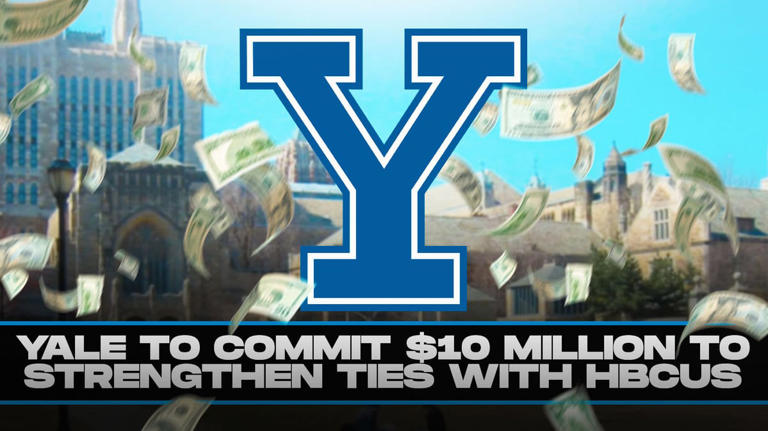In a notable development, Yale University has made a significant commitment to furthering its collaboration with Historically Black Colleges and Universities (HBCUs) by pledging a substantial donation of $10 million. This funding will establish the Alliance for Scholarship, Collaboration, Engagement, Networking, and Development (ASCEND), with Yale committing $2 million annually over the course of the next five years. The primary objective of ASCEND is to foster robust research partnerships between faculty members at Yale and HBCUs, aiming to enhance scholarly collaboration and promote academic exchange.
The announcement of this initiative comes on the heels of a formal apology issued by Yale University President Peter Salovey and Senior Trustee Joshua Bekenstein ’80, addressing the institution’s historical connections to slavery. Coinciding with this apology was the release of findings from the Yale and Slavery Research Project, which underscored Yale’s commitment to confronting its past and fostering reconciliation. Additionally, Yale outlined plans to develop research fellowships in collaboration with HBCUs, signaling a proactive effort to engage with issues of historical significance and foster meaningful dialogue.
However, this recent announcement follows criticism from the NAACP Connecticut State Conference regarding Yale’s initial apology in February. Connecticut NAACP President Scot X. Esdaile raised concerns about Yale’s handling of its historical legacy, particularly highlighting the university’s ownership of the David Blight book, “Yale and Slavery: History.” Esdaile criticized the book for its alleged omission of crucial information regarding Yale’s involvement in eugenics, underscoring the need for comprehensive and transparent engagement with difficult historical truths.
In light of these developments, Yale’s commitment to fostering collaboration with HBCUs through the ASCEND initiative represents a proactive step towards promoting diversity, equity, and inclusion within academia. By investing in research partnerships and expanding opportunities for HBCU graduates, Yale demonstrates its commitment to fostering meaningful engagement and addressing historical injustices in a constructive and collaborative manner.
In a recent interview with the News, Esdaile expressed his concerns about what he perceives as a sanitized version of history presented by Yale’s apology and subsequent actions. He emphasized the importance of centering Black voices in the narrative and called for greater involvement of Black historians, civil rights activists, leaders, and educators to ensure an accurate representation of historical truths. Esdaile acknowledged the significance of constructive criticism in fostering meaningful dialogue and advocated for a more comprehensive approach to addressing Yale’s historical legacy.
The ASCEND initiative, as outlined by Yale, aims to facilitate collaboration between faculty members from both Yale and HBCUs through various avenues, including faculty collaboration grants, teaching fellowships, and research opportunities. This initiative seeks to create joint teaching experiences and foster collaborative research endeavors, thereby promoting academic exchange and partnership.
Furthermore, Yale intends to expand its existing programs, such as the Summer Undergraduate Research Fellowship program, to provide more opportunities for HBCU undergraduate students to engage in research and pursue doctoral degrees. Additionally, Yale plans to increase the participation of HBCU graduates in post-baccalaureate programs, demonstrating its commitment to supporting the educational advancement of underrepresented communities.
Esdaile also referenced historical efforts by New Haveners to establish the first Black college in America in 1831, highlighting the importance of community-led initiatives that directly benefit Black individuals. While acknowledging Yale’s recent pledge as a positive step, Esdaile emphasized the need for continued efforts to address systemic inequalities and uplift marginalized communities.
Regarding Yale’s ownership of Blight’s book, Esdaile raised concerns about power dynamics and representation, suggesting that Yale’s control over the narrative may perpetuate marginalization. Blight responded to these concerns, explaining the challenges faced during the book’s production and expressing openness to addressing topics such as eugenics in a potential second volume.
Currently, Yale University is engaged in partnerships with five HBCUs, including Clafin University, Hampton University, Morgan State University, North Carolina A&T University, and Tuskegee University. These collaborations reflect Yale’s commitment to fostering diversity and inclusion within academia and advancing mutual learning and collaboration between institutions.
